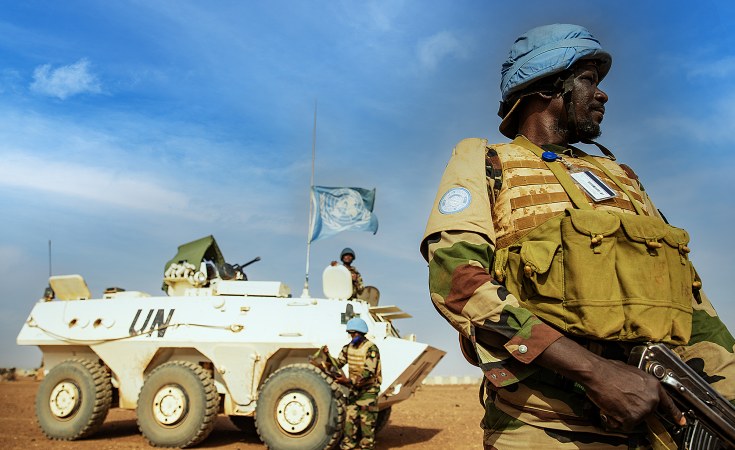Malians are due to take part in a referendum on Sunday that paves the way for elections and democratic rule in 2024. Repeated postponements and two military coups have stood in the way of the poll since 2017.
Millions of voters are eligible to decide on a draft constitution for Mali in Sunday's referendum. The process is expected to pave the way for a general election next year.
The long-awaited referendum is a milestone in the transition of Mali from three years of military rule to democracy.
The military junta in power following two coups since August 2020 has promised to ensure elections in the Sahel country by February 2024.
On June 11, members of the security forces cast their votes in the referendum.
Elections observers expressed cautious satisfaction over the early voting process but have called for more voter education ahead of polling Sunday's to ensure a high turnout.
The Coalition for Citizen Election Observation (COCEM) meanwhile said its observers were not allowed into Gao and Timbuktu. The group also cited the non-display of electoral lists at polling stations and the absence of pre-printed registration lists.
Key constitutional changes
Constitutional reform has long been debated in Mali were the referendum had initially been set for 2017.
The draft constution strengthens the power of the president to appoint or sack the prime minister and ministers and dissolve parliament.
It also makes provision for the scrapping of French as Mali's official language
A clause describing Mali as an "independent, sovereign, unitary, indivisible, democratic, secular and social republic" sparked some controversy among religious leaders.
Security threats to referendum
According to COCEM, early voting did not take place in some parts of northern Mali, including the Kidal region where the ex-Tuareg rebels are in control. This, the election observers say, has raised some security concerns ahead of the vote on Sunday.
Voting didn't take place in Kidal and it gives signals of potential problems ahead of Sunday, Salia Kariba Traoré, a member of Cocem told DW.
"When one of our observers went to the camp [at Kidal], he was told that the operation was not taking place there. It was after checking that we realized that the vote was not held in Kidal," Salia Kariba Traore, a CONCEM official, told DW.
Fighters from the Coordination of Azawad Movements (CMA) - a predominantly Tuareg alliance that fought the state for years - are in charge of security in Kidal.
In 2015, fighters aligned to the CMA signed a peace deal with the government and pro-government armed groups.
Under the Algiers Peace Agreement, the ex-fighters were granted some autonomy and the chance to integrate into Mali's "reconstituted" army to maintain security throughout the north.
The peace agreement is yet to be fully implemented amid tensions between the ex-fighters and the government in Bamako.
How effective is the peace deal?
Aly Tounkara, executive director of the Center for Security and Strategic Studies in the Sahel. sees the failure of the early vote for security forces in Kidal as a development that would worry Mali's junta.
"The non-effectiveness of the referendum process by the elements of the defence and security forces present in Kidal as part of the reconstituted army is eloquent testimony that this part of the territory would escape the control of the central state of Mali," Tounkara said.
Tounkara explained that the current challenge in Kidal "also raises [questions about] the effectiveness of the agreement for peace and national reconciliation."
There has been an effort to prevent the rebels from seeking independence and rather work towards reconciliation, but Tounkara is worried not much has been achieved in that regard.
"It is also a signal from these former rebels that the desire for independence is still relevant," he said.
Edited by: Benita van Eyssen


